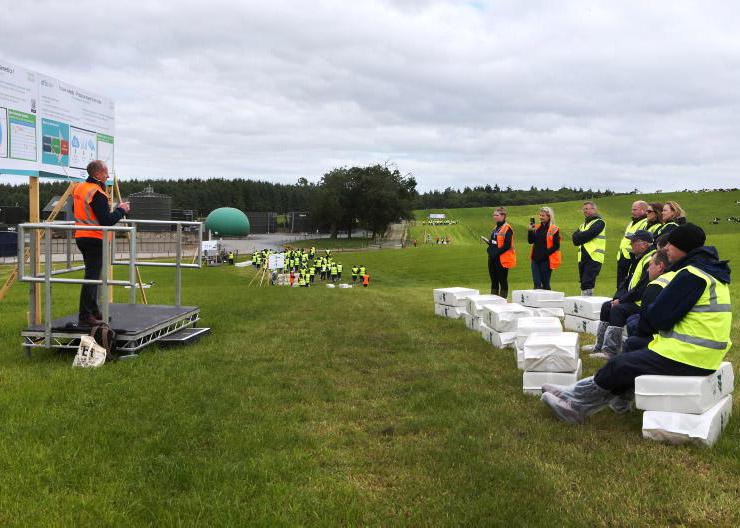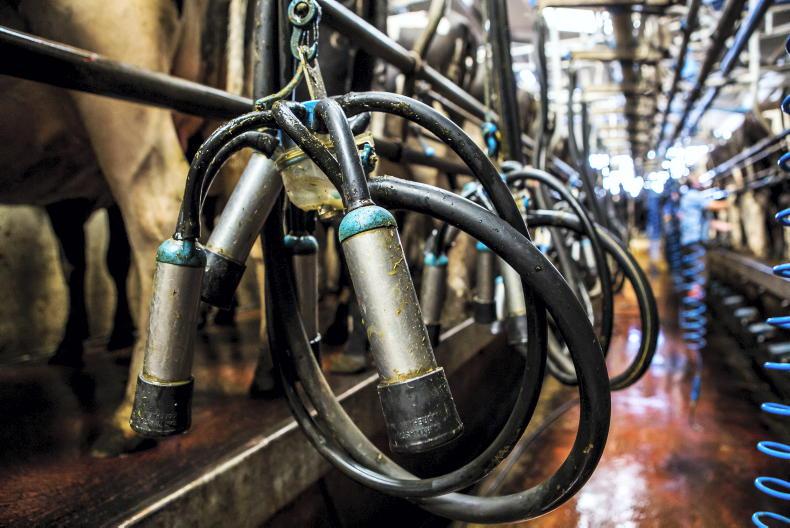A briefing paper from the Oxford Martin Programme on Climate Pollutants says that “setting a separate target for methane emissions helps clarify the implications of emission goals for global temperature”.
Global methane emissions from livestock have a substantial impact on climate, albeit much smaller than the impact of fossil fuel emissions” according to the authors.
“Comparing greenhouse gases as Co2-equivalent using the 100-year global warming potential (GWP100) misrepresents the warming impact of methane.
Expressing methane emissions as “Co2-warming-equivalent” reflects the actual impact of cattle and sheep farming on global temperatures much more accurately.
While increasing methane emissions causes substantial warming, reducing emissions faster than 3% per decade acts to reduce global temperatures” according to the Oxford Martin Programme team.
The paper was authored by Myles Allen, John Lynch (University of Oxford), Michelle Cain (Cranfield University) and David Frame (University of Canterbury, New Zealand).
Temperature responds differently to cumulative and short-lived
climate pollutants
The paper from the Oxford Martin team explains in simple terms why methane behaves differently to carbon dioxide in terms of impact on temperature.
“Surface temperature responds differently to carbon dioxide (CO2) and methane (CH4) emissions because CO2 accumulates in the climate system, while methane is broken down by natural processes on a timescale of about 12 years.
Hence the level of warming caused by CO2 is determined by total cumulative CO2 emissions to date, while the level of warming due to methane is determined more by the current rate of methane emissions in any given decade, and depends much less on historical methane emissions”, according to the paper.

Myles Allen, Professor of Geosystem Science at University of Oxford, is co-author of the Climate Metric for Ruminant Livestock briefing paper.
Why is this relevant to
ruminant livestock?
The Oxford Martin team made three observations in relation to ruminant livestock:
1. Increasing methane emissions can cause very substantial warming, but constant ongoing methane emissions cause relatively little additional warming. In contrast, every tonne of CO2 emitted causes the same amount of warming whenever it occurs. In recent years, global methane emissions have increased, causing lots of warming.
2. Gradually declining methane emissions of 10% over 30 years cause no additional warming.
3. Faster reductions in methane emissions lead to a lowering of global temperatures. In contrast, until net emissions of CO2 and nitrous oxide are reduced to zero, they continue to increase global temperatures. Reducing methane to zero while continuing to emit CO2 could delay, but not prevent, global temperature rising.
If all this seems a bit too technical – that’s because it is. But it is important and now very relevant to farm livelihoods. The science is clear – stabilising methane emissions causes relatively little additional warming.
Increasing methane emissions, as we have seen in Ireland in the past decade, can cause very substantial warming.
Farmers have to accept that this cannot continue. Clearly, there are advantages to decreasing methane emissions as it results in a lowering of temperatures. However, that cooling impact would in fact be compensating for at least some of the warming caused by other sectors.
The debate in relation to Ireland’s sector emissions ceilings in recent days has centred on the argument that “if agriculture does less, every other sector must do more”.
It is true that the lower the emissions ceiling agreed for the agriculture sector, the higher the cuts required by the transport and energy sectors in order to meet the carbon budgets set by the Irish Government.
The alternative is that Ireland does not meet its own legally binding targets. Essentially, agriculture will likely be told to put on the green jersey and take a share of the carbon budgets that is beyond what science determines is necessary in respect of the warming the sector causes.
If good science were being pursued and all citizens being afforded their due respect, separate, ambitious and binding targets would have been set for methane.
The best that can be hoped for now is a just transition for those farmers, who will sustain economic losses as a result.
A briefing paper from the Oxford Martin Programme on Climate Pollutants says that “setting a separate target for methane emissions helps clarify the implications of emission goals for global temperature”.
Global methane emissions from livestock have a substantial impact on climate, albeit much smaller than the impact of fossil fuel emissions” according to the authors.
“Comparing greenhouse gases as Co2-equivalent using the 100-year global warming potential (GWP100) misrepresents the warming impact of methane.
Expressing methane emissions as “Co2-warming-equivalent” reflects the actual impact of cattle and sheep farming on global temperatures much more accurately.
While increasing methane emissions causes substantial warming, reducing emissions faster than 3% per decade acts to reduce global temperatures” according to the Oxford Martin Programme team.
The paper was authored by Myles Allen, John Lynch (University of Oxford), Michelle Cain (Cranfield University) and David Frame (University of Canterbury, New Zealand).
Temperature responds differently to cumulative and short-lived
climate pollutants
The paper from the Oxford Martin team explains in simple terms why methane behaves differently to carbon dioxide in terms of impact on temperature.
“Surface temperature responds differently to carbon dioxide (CO2) and methane (CH4) emissions because CO2 accumulates in the climate system, while methane is broken down by natural processes on a timescale of about 12 years.
Hence the level of warming caused by CO2 is determined by total cumulative CO2 emissions to date, while the level of warming due to methane is determined more by the current rate of methane emissions in any given decade, and depends much less on historical methane emissions”, according to the paper.

Myles Allen, Professor of Geosystem Science at University of Oxford, is co-author of the Climate Metric for Ruminant Livestock briefing paper.
Why is this relevant to
ruminant livestock?
The Oxford Martin team made three observations in relation to ruminant livestock:
1. Increasing methane emissions can cause very substantial warming, but constant ongoing methane emissions cause relatively little additional warming. In contrast, every tonne of CO2 emitted causes the same amount of warming whenever it occurs. In recent years, global methane emissions have increased, causing lots of warming.
2. Gradually declining methane emissions of 10% over 30 years cause no additional warming.
3. Faster reductions in methane emissions lead to a lowering of global temperatures. In contrast, until net emissions of CO2 and nitrous oxide are reduced to zero, they continue to increase global temperatures. Reducing methane to zero while continuing to emit CO2 could delay, but not prevent, global temperature rising.
If all this seems a bit too technical – that’s because it is. But it is important and now very relevant to farm livelihoods. The science is clear – stabilising methane emissions causes relatively little additional warming.
Increasing methane emissions, as we have seen in Ireland in the past decade, can cause very substantial warming.
Farmers have to accept that this cannot continue. Clearly, there are advantages to decreasing methane emissions as it results in a lowering of temperatures. However, that cooling impact would in fact be compensating for at least some of the warming caused by other sectors.
The debate in relation to Ireland’s sector emissions ceilings in recent days has centred on the argument that “if agriculture does less, every other sector must do more”.
It is true that the lower the emissions ceiling agreed for the agriculture sector, the higher the cuts required by the transport and energy sectors in order to meet the carbon budgets set by the Irish Government.
The alternative is that Ireland does not meet its own legally binding targets. Essentially, agriculture will likely be told to put on the green jersey and take a share of the carbon budgets that is beyond what science determines is necessary in respect of the warming the sector causes.
If good science were being pursued and all citizens being afforded their due respect, separate, ambitious and binding targets would have been set for methane.
The best that can be hoped for now is a just transition for those farmers, who will sustain economic losses as a result.











SHARING OPTIONS